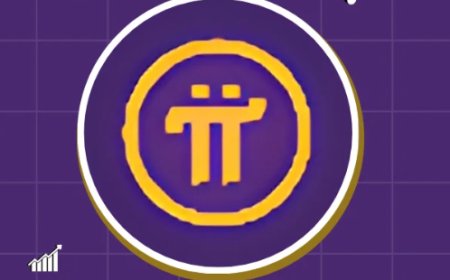Top Mistakes to Avoid When Applying for a Germany Student Visa from Pakistan
Applying for a Germany student visa from Pakistan? Avoid these common mistakes that can lead to delays or rejections. Learn what not to do and improve your chances of success.

Planning to study in Germany is exciting but applying for a Germany student visa from Pakistan can quickly turn stressful if you're not careful. Even small mistakes can lead to rejection, delay your academic plans, or force you to reapply (and pay again).The process is strict, and the German Embassy expects everything to be precise, well-documented, and timely. So, before you start booking appointments or printing your documents, take a few minutes to learn about the most common mistakes Pakistani students make and how to avoid them.
1. Applying Without a Proper Admission Letter (Offer Letter)
When applying for a Germany student visa from Pakistan, your admission letter plays a crucial role its one of the first things visa officers look at. Submitting a vague, conditional, or incomplete letter can instantly weaken your application. To avoid unnecessary delays or outright rejection, you need to provide clear proof that you've been accepted into a legitimate academic program. In most cases, that means you must submit either:
-
An unconditional admission letter from a recognized German university (university or Hochschule)
-
Or a conditional offer + proof of meeting conditions (like language proficiency or foundation course enrollment)
Dont: Submit a letter from an unrecognized private college.
Do: Make sure your letter clearly states your name, the course, duration, and admission confirmation.
2. Insufficient Funds or Blocked Account Issues
One of the most critical requirements when applying for a Germany student visa from Pakistan is providing proof of financial stability. Germany mandates that students show they can support themselves during their stay, which currently means having at least 11,208 (subject to annual adjustment due to inflation) deposited in a blocked account. This account ensures that you can cover your living expenses while studying, and it must be set up properly before your visa interview.
However, many applicants face issues with this step. Common money-related mistakes include:
-
Not transferring the full amount
-
Delays in account activation (usually with Fintiba or Expatrio)
-
Submitting a blocked account confirmation without balance proof
Do: Transfer the full required amount well in advance.
Dont: Depend on affidavits, fake bank statements, or third-party sponsors not accepted by the embassy.
3. Weak or Copy-Paste Statement of Purpose (SOP)
The Statement of Purpose (SOP) is one of the most important parts of your Germany student visa application. Its your personal pitch your chance to explain clearly and convincingly why youre choosing to study in Germany, how the course aligns with your academic or professional goals, and what motivated you to pick that specific program or university. Its not just a formality; visa officers read it to understand your intentions, long-term plans, and whether youve genuinely thought through your decision.
Unfortunately, many applicants overlook its importance and end up making preventable errors. Common SOP mistakes include:
-
Generic content copied from the internet
-
Poor English grammar
-
No mention of future plans or intention to return to Pakistan
Do: Write a clear, honest, and customized SOP. Link your past studies and future goals logically.
Dont: Use ChatGPT to generate a full SOP and submit it without reviewing or editing.
4. Missing or Mismatched Documents
When it comes to visa applications, precision is everything. A single typo, mismatch, or missing detail in your paperwork can result in delays or worse, a straight rejection. The German Embassy takes document verification seriously, and even small discrepancies between your application and your passport can raise red flags. Thats why its critical to ensure that every document you submit whether academic, financial, or personal matches your passport exactly, especially your full name, date of birth, and educational qualifications.
Yet despite the importance of accuracy, many applicants make avoidable mistakes when preparing their file. Common checklist errors include:
-
Using nicknames or mismatched spellings
-
Missing attested copies
-
Submitting incomplete translations (if needed)
-
Not organizing documents in the required order
Do: Double-check everything against the official checklist from the German Embassy Islamabad website.
Dont: Rely on agents without personally verifying the document requirements.
5. Not Booking the Visa Appointment Early Enough
Visa appointments in Pakistan (especially Islamabad and Karachi) can have long waiting times sometimes up to 23 months.
Do: Book your APS (Academic Evaluation Centre) and embassy appointments as soon as possible after admission.
Dont: Wait for your blocked account to be ready before booking do things in parallel.
6. Ignoring German Language Requirements (Even for English Programs)
Even if your course is in English, some embassies still want proof of basic German language understanding (A1 level).
Do: Take a Goethe-Institut course or exam if possible.
Dont: Assume its optional just because the course is in English double-check with your embassy.
7. Improper Interview Preparation
Many students mistakenly assume the visa interview is just a routine step a formality where documents are stamped and boxes are checked. In reality, it's a critical part of the decision-making process. The visa officer uses this opportunity to assess your intentions, clarity of purpose, and how well you've planned your studies abroad. They want to be sure you're a genuine student who understands what you're doing and why. Thats why its essential to prepare thoroughly. During the interview, officers may ask:
-
Why Germany?
-
Why this university and course?
-
How will you fund your stay?
-
What are your future plans?
-
Why not study in Pakistan or another country?
Do: Prepare short, clear answers. Be confident but respectful.
Dont: Memorize answers or lie. Visa officers can easily spot insincerity.
8. Not Verifying Academic Documents through APS
From late 2022 onward, APS (Academic Evaluation Centre) certificate is mandatory for most Pakistani students applying to German universities.
Do: Start your APS process early it can take 68 weeks
Dont: Skip APS or submit without the result its a direct rejection
9. Not Knowing the Difference Between Types of Visas
When planning to study in Germany, it's important to know that not all student visas are the same. The German Embassy offers different types of visas depending on your current academic status and future plans. Applying for the wrong visa can lead to unnecessary delays or even rejection, so understanding which category you fall under is crucial before booking your appointment or submitting your documents. There are different visas like:
-
Student Visa (long-term) for full degree courses
-
Language Course Visa for German language learning
-
Student Applicant Visa if you havent received final admission
Do: Apply for the correct type based on your documents.
Dont: Assume all are the same. Each has unique rules.
10. Last-Minute Planning
Many students underestimate the processing timeline. Between securing admission, preparing documents, booking appointments, and getting the visa, it can easily take 36 months.
Do: Start planning in advance even 68 months before your intended semester.
Dont: Wait for your final exam results before starting.
FAQs: Germany Student Visa from Pakistan
1. How long does it take to get a Germany student visa from Pakistan?
On average, 48 weeks after the interview, but delays are common during peak seasons. Start early.
2. Can I apply for a visa before getting final admission?
You can apply for a Student Applicant Visa if admission is pending. However, most students wait for full admission before applying.
3. Is IELTS required for the visa?
Not always, but most universities require it. Some embassies may ask for English proficiency proof even if your course is in English.
4. Can I use personal or family bank statements instead of a blocked account?
No. The blocked account is mandatory unless you have a DAAD scholarship or government funding.
5. Do I need health insurance before the visa is approved?
Yes. You must show valid travel or student health insurance during your visa application process.
6. How much money do I need in the blocked account?
As of 2025, around 11,208 per year is required. Always check for the latest updates.
7. Can I change universities after getting the visa?
In most cases, yes but youll need to inform the Foreigners' Office in Germany and possibly reapply for a residence permit.
8. What if my visa is rejected?
You can appeal or reapply, but it's better to understand the rejection reason first and correct the mistake before trying again.
9. Do I need to translate all documents to German?
Not all. Most documents can be in English, but transcripts or certificates in Urdu must be translated and notarized.
10. Can I work while studying in Germany?
Yes, students can work up to 120 full days or 240 half days per year. No need for a separate work permit.










































